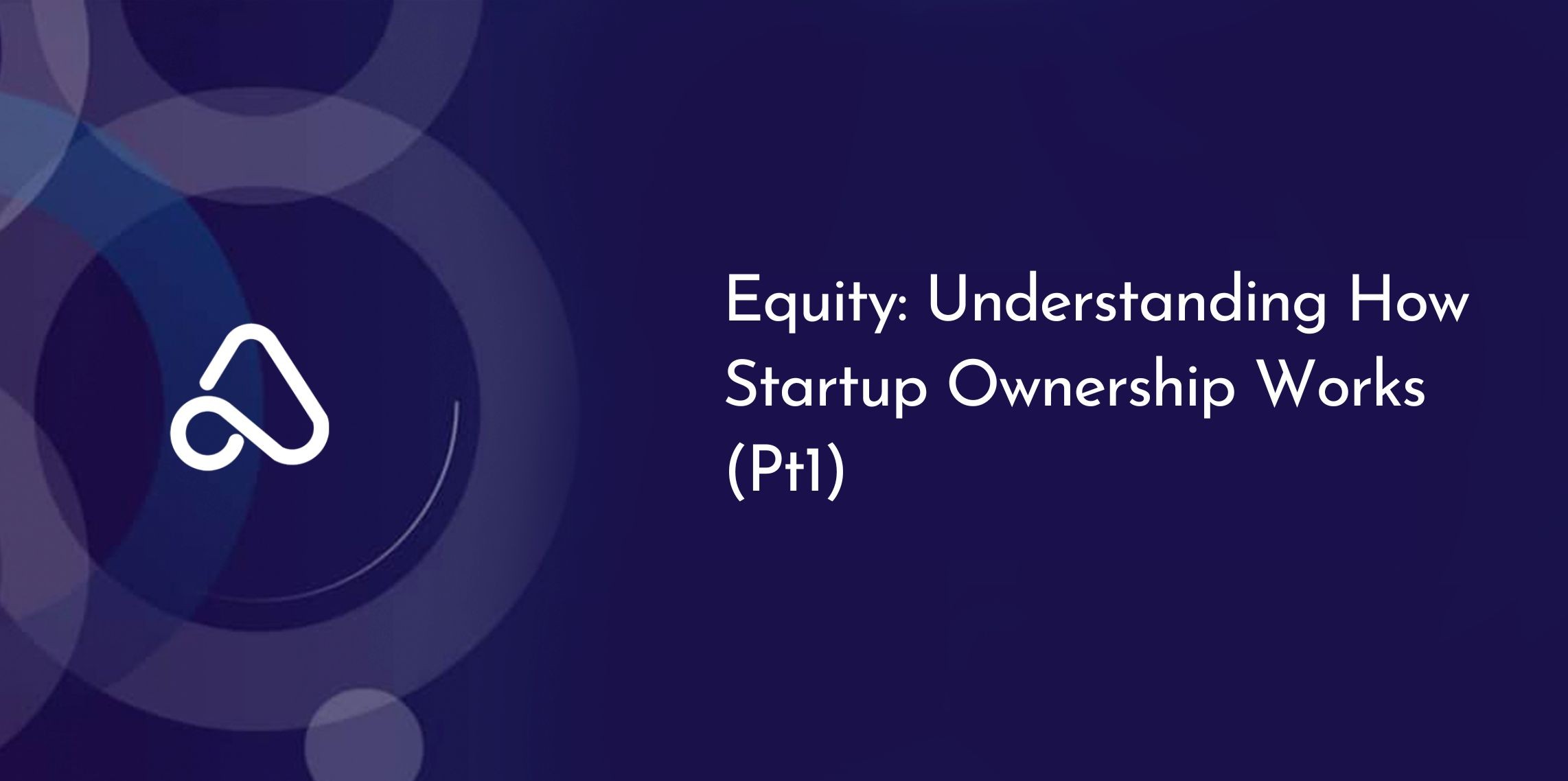Aidi — Equity: Understanding How Startup Ownership Works (pt1)
Return
One of the most exciting things about building a startup is that you’re creating something from scratch; and with that comes ownership. If you’re a founder or an angel investor, understanding how startup ownership works is not optional; it’s essential. When talking about startup ownership, you’ll often hear words like “equity,” “shares,” “cap tables” being thrown around a lot– especially EQUITY. Investors talk about it, lawyers draft agreements for it, founders sometimes get sleepless nights trying to allocate it appropriately to the right quarters, and even employees sometimes accept it instead of higher salaries.
But what does it really mean to “own” part of a company and how does that ownership actually work? Let me break it down:
What Is Equity?
Equity refers to ownership in a company. It’s your slice of the pie (total ownership of a company). This means it is the percentage of the company that legally belongs to you as a founder, investor, or employee, and how big that slice is depends on how many shares you own relative to the total number of shares in the company. For example, if your startup is a pie cut into 100 slices, each slice represents 1% ownership. The more slices you own, the more of the business (and future value) is yours. As your startup grows, you might give away or sell some slices to co-founders, employees, or investors but your goal is to make sure that, even if your percentage gets smaller over time, the value of your slice keeps increasing.
So, simply put, Equity is how founders split ownership of the company among themselves, how investors get a return on their investment, and how employees are incentivized through stock options. Equity is typically measured in shares.
What Are Shares?
Shares are units of ownership in a company. Think of shares as the smallest units of ownership your company can be divided into. When a startup is formed, the founders typically decide how many total shares to create, which are sometimes called the authorized shares. For example, 10 million shares. These shares can be distributed to founders, investors, and employees over time. Each share represents a small slice of ownership. So, if you own 1 million shares out of 10 million, you own 10% of the company.
However, it’s important to note that you don’t just “own 10%”, you own 1 million shares. Your percentage is relative to the total shares outstanding. Your ownership percentage is calculated as: (Your shares ÷ Total outstanding shares) × 100. For example, you own 1 million shares out of the total 10 million shares of the company. Your ownership is (1 million ÷ 10million) × 100. But things get interesting when dilution comes into the picture as ownership can change overnight.
What is Dilution?
Dilution is when the percentage of ownership of existing shareholders in a company reduces when new investors come in or new shares are issued for employee stock options. Put simply, every time you raise money and issue new shares to investors, the total number of shares in your company increases. But if you don’t buy additional shares, your ownership percentage decreases. This is dilution.
So, for example, you have 1 million shares in a company with 10 million total shares = 10% ownership. If you raise funds and issue 2 million new shares to an investor, the company has a total of 12 million shares. You still have 1 million shares out of the total shares, but your ownership becomes about 8.333%. This is why managing your cap table (capitalization table) is so important. It tracks who owns how many shares, what percentage of the company they own, and how those numbers change after each funding round.
How Should Equity be Distributed in Early-Stage Startups?
Typically, this is how equity should be distributed in an early-stage startup. No matter how large the pie grows, always make sure you and your co-founder(s) have the larger slices to maintain the ownership of your company. Below is a typical range distribution of equity for early-stage startups:
Stakeholder Typical % Range
Founder 50-70%
Employee (Option pool) 10-20%
Early investors 10-30%
Advisors 0.5-2%
Note that these numbers can change as the company raises more money and grows.
Why Does Equity Matter?
- Aligns Interests and Incentives: Equity ensures that everyone (founders, employees, and investors) is motivated to grow the company’s value. When people own a piece of the business, they’re more invested in its success because their personal gain depends on it.
- Attracts and Retains Top Talent: Early-stage startups often can’t compete with big companies on salaries, but equity offers long-term advantage. Talented hires may accept lower pay today in exchange for the chance to own part of a future billion-dollar business.
- Fuels Growth Through Investment: Equity is often the currency you use to raise capital. By selling a portion of ownership to investors, you get the funding needed to scale without taking on debt or paying interest.
- Rewards Risk and Effort: Building a startup is risky and demanding. Equity is how founders and early team members are compensated for taking that leap. If the company succeeds, the value of their shares can far exceed any salary they could have earned elsewhere.
Equity is not just a number on paper; it’s the foundation of your relationship with co-founders, employees, and investors and how value is created and distributed in your company. Understanding how it works helps you make smarter and more strategic decisions.
So, know your pie, protect your slice, and keep making the pie bigger.





